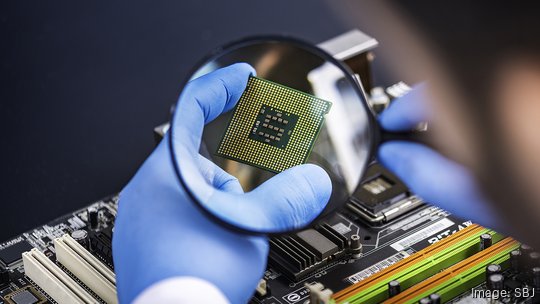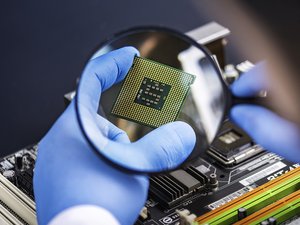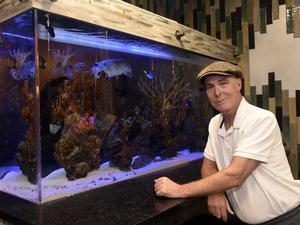
Sacramento has submitted its application for a U.S. Economic Development Administration designation of a Tech Hub to be based at California State University Sacramento, and the application includes support letters from Tesla Inc., Bosch and Siemens AG, among others.
The Tech Hub program is a part of the Creating Helpful Incentives to Produce Semiconductors and Science Act of 2022, also known as the CHIPS Act, which includes establishing 20 Tech Hubs around the country funded by a total appropriation of $500 million in federal money.
“I think we have a really good shot,” said Barry Broome, CEO of the Greater Sacramento Economic Council, an economic development group in Sacramento. “If we pull this off, we will be in a position to build an economy with living wages for everyone in the community."
“The CHIPS Act took two years of hard work to come to fruition, and now I am laser focused on ensuring our region gets its slice of the pie,” said U.S. Rep Doris Matsui (D-Sacramento), in a news release. Matsui wrote the original legislation for what would become the CHIPS Act.
"The Sacramento region has long been a hub of innovation and forward-thinking, and the Tech Hub program is a real opportunity to build on this strong foundation,” she said. “This project exemplifies our commitment to sustainable economic development and positions us at the forefront of the clean energy revolution. By fostering collaboration between academia, industry and government, we are charting a course toward a greener and more prosperous future for our community."
The Tech Hub program seeks to strengthen a region’s ability to manufacture, commercialize and deploy critical new clean technologies. The CHIPS Act itself is meant to increase manufacturing and research of semiconductors in the United States.
"This initiative will not only attract investment and create jobs, but also position our region as a global player in sustainable technology and innovation, while combating climate change," Broome said.
“We need to solve the problems of the industry,” Broome said. California regulators for years have put pressure on the auto industry to decarbonize and innovate in clean transportation.
It's important that there are research and development programs to “make battery technology and transportation technology better," Broome said. "Where do you go if you are looking for design engineers in the ZEV Industry? We think it should be at Sac State."
Other local consortium partners include the Sacramento Municipal Utility District, Sacramento State, the nonprofit Valley Vision, University of California Davis, the Sacramento Employment and Training Agency, the Sacramento Air Quality Management District, the California Mobility Center, The Growth Factory business accelerator and the Greater Sacramento Urban League, among others.
The Tech Hub program is meant to invest in regions with existing assets, resources, capacity and potential to be globally competitive within a decade and to create jobs.
The program application demands a local consortium that must include at least one each of five categories: a university, a local government, industry groups or at least one company, an economic development organization and labor or workforce training groups.
Sacramento’s application has more than one in each category, and with Tesla (Nasdaq: TSLA), Siemens and Bosch, it has international heavyweights in technology and transportation. Lion Electric Co. and Rivian Automotive Inc. are also supporting Sacramento's application.
Siemens train subsidiary Siemens Mobility has been building trains and light rail vehicles in Sacramento since 1984. It now employs more than 2,500 people locally making trains and light rail for North America. Bosch is in the process of buying Roseville-based TSI Semiconductors' chip fabrication plant to quickly bring a new generation of silicon carbide chips to market. Bosch has said it will invest $1.5 billion into the Roseville plant with new equipment and renovations aimed primarily at the electric vehicle market.
"A fully funded ZEV Innovation Hub would benefit our company by bringing together leading-edge innovators, workforce developers, capital providers and industry leaders to propel Sacramento’s advanced mobility and clean energy industry cluster to new heights," said Chris Nevers, senior director of public policy with Irvine-based Rivian (Nasdaq: RIVN), in a support letter for the Sacramento effort.









